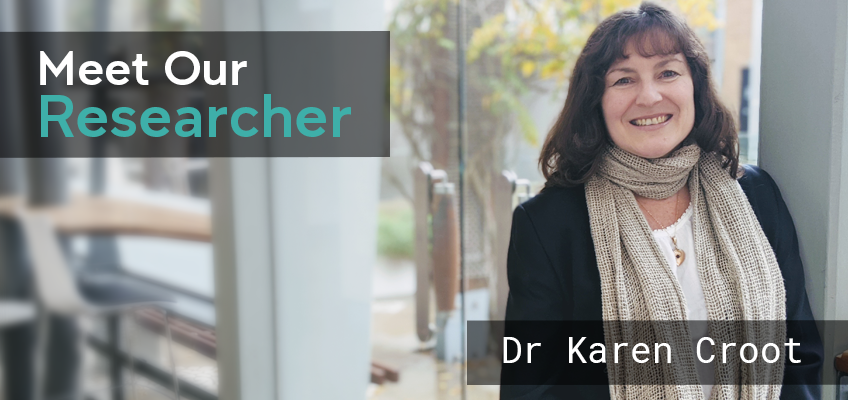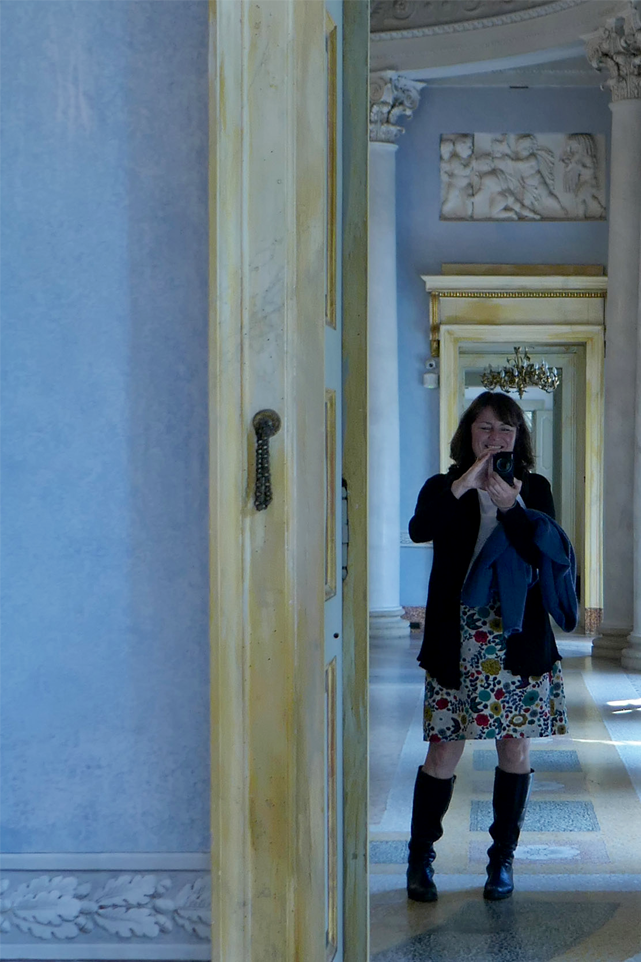20 Jun 2020

As our understanding of brain health expands rapidly, more and more individuals are becoming extremely health conscious. This includes a surge in demand for access to cognitive health assessment. Dr Karen Croot and her fellow researchers on CHeBA’s CogSCAN project aim to address this demand and evaluate the efficacy of new methods of testing to diagnose cognitive disorders.
How did you first get into researching the ageing brain?
My most inspiring lecturer when I was an undergraduate student was a neuropsychology professor, he talked about the work that he was doing to understand brain disorders. I would sit on the edge of my seat during his lectures; I was so enthralled and excited by his work. When the opportunity arose for me to do a PhD at the Medical Research Council Cognition and Brain Sciences Unit in Cambridge where he had worked, I could not get there fast enough.
Did you experience a ‘defining moment’ which led you to this field?
Yes. At the end of high school I visited a Rehabilitation Hospital with a friend who was employed as a physiotherapist there. This was the first time I saw the human impact of stroke and other neurological diseases, and I was profoundly moved and inspired by the courage of the people who were undergoing rehabilitation and the compassion of the staff. Then when I was an undergraduate student I became fascinated by human cognitive abilities and what happens when the brain is impaired by injury or disease. Our knowledge has grown enormously since I started out. Brain science has been one of the research areas that has shown the greatest advances in recent years and it has undeniably been an exciting place to be.

Do you have any personal interests or activities which are protective behaviours against cognitive decline?
I exercise, engage in mindfulness activities, and enjoy cognitively engaging hobbies. I enjoy photography and designing things - I have designed cushions, a wine cellar under some stairs in our home, and at the moment I am planning a garden. I am now actively learning about garden design and experimenting growing different plants. I love what you learn from what works and what doesn’t. While making teepees for the sweet peas over the weekend I realised just how much I have learnt about sweet peas over the last four years! They are now self-seeding which means I no longer have to plant them, but I do have to look after them. Combining physical exercise and complex mental activity interests is protective for brain health and helps reduce risk of cognitive decline.
What are you currently researching?
I am a researcher on the CogSCAN study at CHeBA; a project which is investigating the use of computerised neuropsychology assessments as opposed to the traditionally-used pen and paper assessments. In the computerised neuropsychology assessments, people do cognitive tests on an iPad and the iPad then gives responses and scores up the results. As such, it’s a very different experience to having instructions and encouragement provided by a person. The point of the CogSCAN study is to find out whether the tests are accurate enough and acceptable enough to older adults to use them to diagnose and monitor cognitive impairment in older adults.
Why is your research important?
These computerised assessments are being made available to clinicians and researchers. However, most of the information we have about how effective they are comes from the companies or the organisations that are providing the tests. This study is completely independent of all the test providers and it is essential that there is an independent evaluation for any kind of intervention, technique or measure that’s going to be used in the health industry. Another reason it is so important is that there is an increasing number of older people who are becoming more and more aware of their cognitive health and in turn demanding greater assessment of their cognitive health. It might be that the computerised neuropsychology assessment is more accurate and more enjoyable than the traditional assessments, while at the same time able to be delivered more widely. The third reason my research is important is that a big component of the CogSCAN study is to glean feedback from people in terms of what they think about the tests. We genuinely want to know; not just whether we can roll these out in a widespread way, but do people like doing them? Are they enjoyable or would they feel more supported doing the tests face-to-face in the traditional way?
What do you love about working for CHeBA and what you are doing?
I think CHeBA’s researchers are of the highest calibre, which is very exciting to be around. I like the scientific credentials of CHeBA, the quality of the research and the breadth of projects they’re involved in. Also the fact that a lot of the projects have really substantial international reach and are part of large international collaborations that are really cutting edge. The projects work right across a wide range of questions related to brain health and healthy ageing and that’s a great context for any project and any scientist. Beyond that, I really like the research participants.
I love rolling up to work and interacting with those individuals that have nominated to be a research volunteer. I am continually very touched by the volume of people who give up their personal time to participate in research.
You simply cannot do research which requires answers to questions about older adults without older adults taking part. In the CogSCAN study we have interacted with over 500 participants to this point. It is wonderful to meet them, inspiring to witness their generosity in giving up their time, coming in and trying out these computerised tests. On a daily basis that is unquestionably the thing I enjoy the most about working with CHeBA - interacting with the research participants.
What is the ultimate hope you have for your research?
I would like to see older people with cognitive decline able to access an assessment in a timely fashion that is tailored to them and enables opportunity to address their concerns and their questions. Ultimately, this would help get information that is meaningful to them and help them not just meet their goals but also maximise their quality of life.
This interview was undertaken during the COVID-19 self-isolation period. Dr Croot found that watching international news on tv kept her in touch with what was happening in other parts of the world, while going for walks each day helped her appreciate the local community and supported her mental resilience while physically isolated.
Donations are fundamental for critical research to continue following COVID-19.
If you would like to discuss supporting Dr Croot’s work specifically, or would like information
on leaving a legacy via a Gift in your Will, please contact h.douglass@unsw.edu.au.

Dr Karen Croot is a Clinical Neuropsychologist working on CHeBA’s CogSCAN Study which aims to evaluate emerging neuropsychological assessment devices in comparison to traditional face-to-face methods conducted by practitioners. The study is the first of its kind to evaluate both the diagnostic efficacy of computerised tests and the user experience across older people. Prior to working at CHeBA, Karen completed a PhD at the University of Cambridge and a Doctor of Psychology in Clinical Neuropsychology at Macquarie University. At home, she tends to the sweet pea plants and capsicums in her garden.
